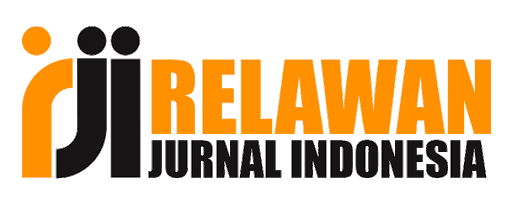Covid-19 Vaccination in Malang City as an Implementation of Religious Moderation from the Perspective of Islamic Law
DOI:
https://doi.org/10.51311/nuris.v8i2.381Keywords:
Vaksinasi, Covid-19, Moderasi Beragama, Hukum IslamAbstract
The polemic about Covid-19 pandemic is indeed quite complicated, especially when it is accompanied by the rise of hoax news on various social media pages. The vaccination program promoted by the government initially encountered problems, some religious leaders refused to implement the vaccine because the raw material used came from pig trypsin. This condition makes it difficult for the government to cope with the COVID-19 pandemic. This study uses an empirical juridical approach by knowing the response of the people of the city of Malang in responding to the Covid-19 vaccination and analyzed with a maqashid sharia approach. The results showed that at first the people of Malang City were not enthusiastic about implementing the vaccine because it was influenced by information that developed on social media. However, in the end they were willing to be vaccinated after knowing the truth of the news and the importance of the covid-19 vaccination. The government's efforts to promote Covid-19 vaccination are in line with the maqashid sharia concept in the form of hifz al-nafs. More than that, religion by prioritizing the safety of the soul is a manifestation of moderation.
Downloads
References
Amit, S, dan G Regev-Yochay. “Early rate reductions of SARS-CoV-2 infection and COVID-19 in BNT162b2 vaccine recipients.†The Lancet 397, 2021, 875–77. https://doi.org/10.1016/S0140-6736(21)00448-7.
Asqalani, Syihabuddin ibn Ahmad ibn Hajar al-. Fath al-Bari bi Syarh Shahih al-Bukhari. Vol. III. Beirut: Dar al Fikr, 1990.
Bukhari, Muhammad bin Ismail al-. Shahih al Bukhary. Vol. II. Beirut: Dar al-Fikr al-Arabi, 1987.
GazÄli, AbÅ« HÄmid Muhammad bin Muhammad al-. al- Mustaá¹£fÄ min ‘Ilm al-Uṣūl. Mesir: Syirkah at- ṬibÄ’ah al-Fanniyyah al-Muttahidah, 1971.
Hua, Jinling, dan Rajib Shaw. “Corona Virus (COVID-19) ‘Infodemic’ and Emerging Issues through a Data Lens: The Case of China.†International Journal of Environment Research and Public Health XVII, no. 7 (Maret 2020): 1–12. https://doi.org/10.3390/ijerph17072309.
Juaningsih, Imas Novita, dan Yosua Consuello. “Optimaslisasi Kebijakan Pemerintah dalam Penanganan Covid-19 Terhadap Masyarakat Indonesia.†Salam; Jurnal Sosial & Budaya Syar-i VII, no. 6 (Mei 2020): 509–18. https://doi.org/10.15408/sjsbs.v7i6.15363.
Juwaini, ImÄm al-Haramain AbÅ« al-Ma’Äli ‘Abd al-MÄlik bin ‘Abd Allah al-. al-BurhÄn fi Uṣūl al-Fiqh. Vol. II. Mesir: DÄr al-Aná¹£Är, t.t.
Kementerian Kesehatan RI. “Protokol Tatalaksana COVID-19 di Indonesia,†2021. https://covid19. go.id/p/protokol/protokol-tatalaksana-covid-19-di-indonesia.
Kumar, Dharmendra, dan Rishaba Malviya. “Corona Virus: A Review of COVID-19.†Eurasian Journal of Medicine and Oncology 4, no. 2 (2020): 8–25.
McKee, M., dan S. Rajan. “What do countries need to do to implement effective ‘find, test, trace, isolate and support’ systems.†The Royal Society of Medicine 113, no. 7 (2020): 245–50. https://doi. org/10.1177/0141076820939395.
Muchammad Bayu Tejo Sampurno dkk. “Budaya Media Sosial, Edukasi Masyarakat dan Pandemi Covid-19.†Salam; Jurnal Sosial & Budaya Syar-i VII, no. 6 (Mei 2020): 529–42. https://doi.org/10.15408/sjsbs.v7i5.15210.
Parwanto, MLE. “Virus Corona (2019-nCoV) Penyebab Covid-19.†Jurnal Biomedika dan Kesehatan III, no. 1 (Maret 2020): 7–8. http://dx.doi.org/10.18051/JBiomedKes.2020.v3.1-2.
Qudsy, Saifuddin Zuhri, dan Ahmad Sholahuddin. “Kredibilitas Hadis dalam COVID-19:Studi atas Bażl al-MÄ’ūn fi Fadhli al-ThÄun karya Ibnu Hajar alAsqalany.†Al Quds Jurnal Studi Alquran dan Hadis IV, no. 1 (April 2020): 1–18. https://doi.org/10.29240/alquds.v4i1.1476.
Rohman, S.N. “Adakah Peluang Bisnis di Tengah Kelesuan Perekonomian Akibat Pandemi Corona?†’Adalah 4, no. 1 (2020): 39–56.
Sutaryo. Buku Praktis Penyakit Virus Corona 19 (Covid-19). Yogyakarta: Gadjah Mada University Press, 2020.
Suyut}i, Jalal al-Din al-. al-Asybah Wa an-Nadair. Beirut: Dar al-Kutub al-‘Ilmiyyah, 2015.
Syafrida, dan Ralang Hartati. “Bersama Melawan Virus Covid 19 di Indonesia.†Salam; Jurnal Sosial & Budaya Syar-i VII, no. 6 (Mei 2020): 495–508. https://doi.org/10.15408/sjsbs.v7i6.15325.
Waluyo, Bambang. Penelitian Hukum Dalam Praktek. Jakarta: Sinar Grafika, 2002.
Yusuf Qaradhawi terj. Alwi A.M. Islam Jalan Tengah; Menjauhi Sikap Berlebihan dalam Beragama. III. Bandung: Mizan, 2017.
Zuhaili>, Mustofa al-. al-Qowa’id al-Fiqhiyyah Wa Tat}biqotuha Fi al-Madahib al-’Arba’ah. Damaskus: Dar al-Fikr, 2006.
Downloads
Published
How to Cite
Issue
Section
License
NUR EL ISLAM Journal is an Open Access Journal. The authors who publish the manuscript in this journal agree to the following terms:
(1) The formal legal provisions for access to digital articles of this electronic journal are subject to the terms of the Creative Commons Attribution 4.0 International License (CC BY 4.0), which means that Nur El Islam reserves the right to save, transmit media or format, Database), maintain, and publish articles without requesting permission from the Author as long as it keeps the Author's name as the owner of Copyright.
(2) The reproduction of any part of this journal, its storage in databases and its transmission by any form or media, such as electronic, electrostatic and mechanical copies, photocopies, recordings, magnetic media, etc., will be allowed only with a written permission from Nur El Islam.








